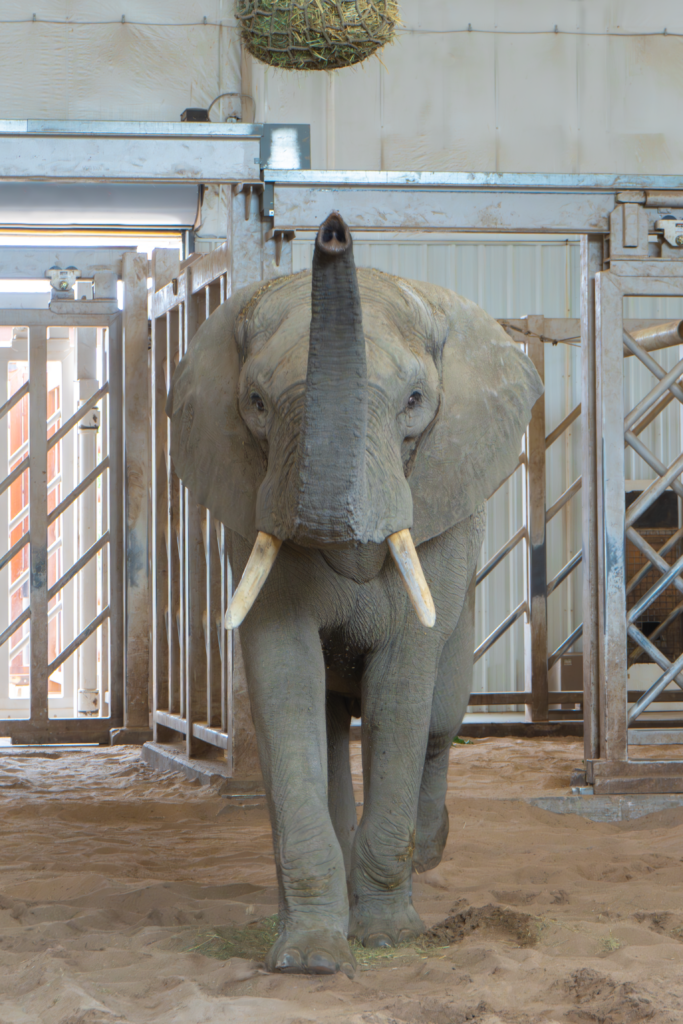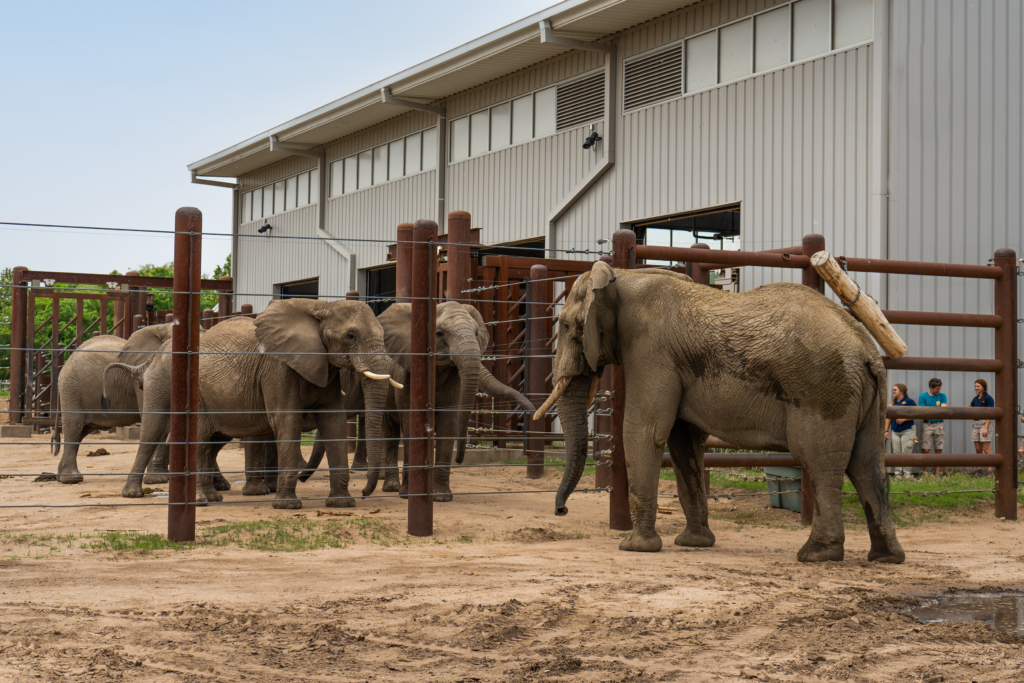It’s early in the morning. So early that the sun hasn’t even risen. Everyone is preparing for the journey about to take place- a nearly five-hour drive from Omaha, Nebraska to Wichita, Kansas. But this road trip isn’t a joy ride, it’s serious business. This trip is about elephant conservation.
Callee is a 22-year-old African Elephant, and he’s no stranger to travel.
Born at the Pittsburgh Zoo on September 19, 2000, Callee lived there until he was 11. In 2011 he travelled over 750 miles to Birmingham, Alabama. Having reached maturity, it was time for Callee to leave his mother and join a bachelor herd.
In the wild, bull elephants only stay with the herd they were born into for 10-12 years, at which point they are dismissed by their mothers. Males will travel in bachelor herds while females stay in multigenerational herds, the two crossing paths at waterholes and to mate.

Callee stayed at the Birmingham Zoo for eight years. In 2019 he once again hit the road, travelling over 920 miles to Omaha, Nebraska. His home for the last 4 years, Callee has sired three calves with two more on the way.
“Callee is responsible for multiple elephant pregnancies at Omaha Zoo,” Sedgwick County Zoo Elephant Manager Lauren Ripple said. “So, we’re very excited to introduce him to the females in our herd.”
At the Sedgwick County Zoo, we now have nine elephants. And of those, five are mature females who are old enough to reproduce. We are hopeful that the introduction of Callee to our elephants will result in pregnancies.
Which brings us to the early morning hours of Tuesday, May 23, as Callee prepared to travel over 300 miles from the Omaha’s Henry Doorly Zoo to the Sedgwick County Zoo.
This move was facilitated by the Association of Zoos and Aquariums’ African Elephant Species Survival Plan. This program is led by expert advisors who work together to manage and distribute elephants to maximize genetic diversity. This breeding program helps to ensure that future generations will be able to see elephants in zoos across the country. In the wild, African elephants are threatened due to poaching and trafficking for the illegal ivory trade

Arriving at the Sedgwick County Zoo around noon, Callee was able to start exploring his new home, enjoy a cantaloupe snack, and begin to socialize with the female herd. And while Callee might be in a new place, there is a familiar face to him. Ajani, a bull elephant who has been at the Sedgwick County Zoo since 2018 used to live at the Birmingham Zoo. Callee and Ajani were in the same bachelor herd in their younger years.
“In our experience he is highly social with all elephants, young or old, male or female,” said Sarah Armstrong, the Elephant Manager for the Omaha Zoo.
We are hopeful that Callee will fit right in with the other elephants here at the Sedgwick County Zoo, and we cannot wait for everyone to be able to meet him at the Reed Family Elephants of the Zambezi River Valley Habitat.